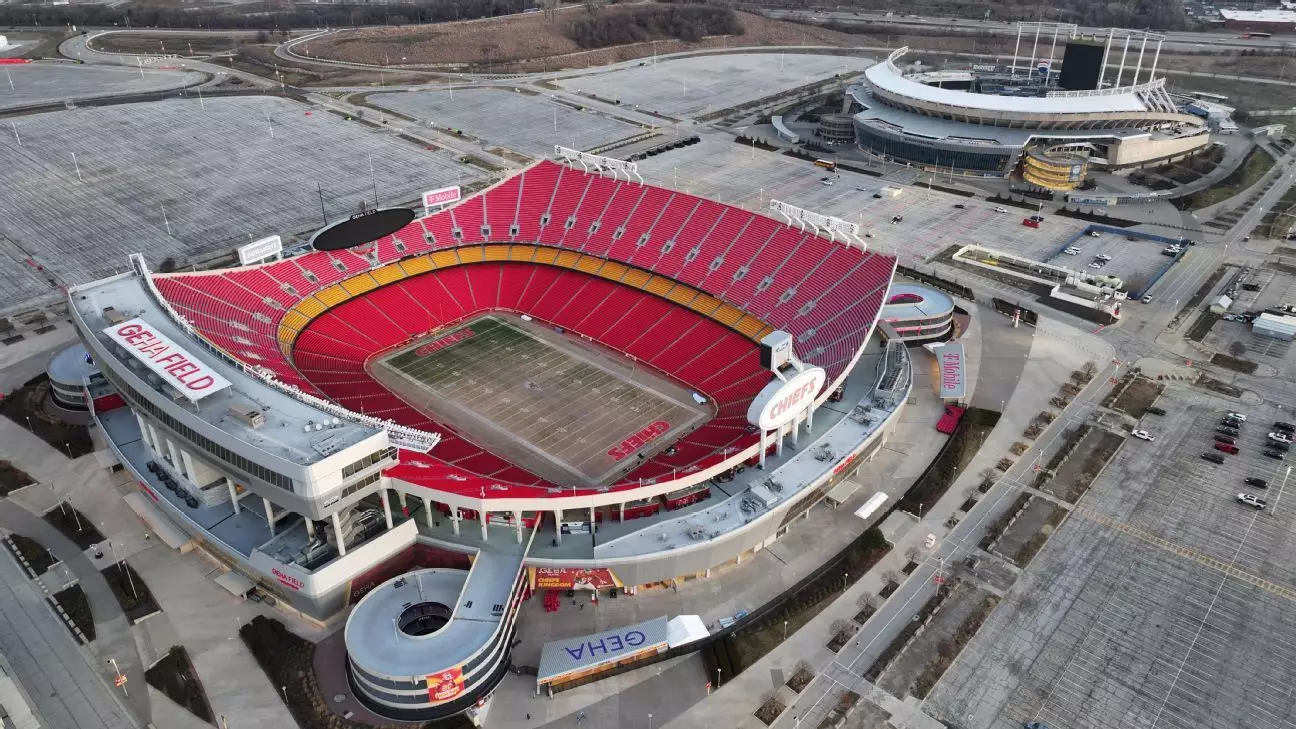In the wake of catastrophic storms that wreaked havoc in Missouri, state legislators are stepping into the fray with a proposed aid package aimed at funneling over $100 million to foster recovery in tornado-ravaged St. Louis. This proactive measure comes at a critical juncture, as the state’s recovery efforts are juxtaposed with the urgent need to retain major sports franchises, the Kansas City Chiefs and Royals. As these teams face a looming deadline to consider an enticing offer from Kansas, Missouri’s government is striving to ensure that their presence remains firmly rooted in the state.
Not only is the financial aspect of this situation noteworthy—the estimated $1.6 billion damage from the recent tornadoes speaks volumes about the scale of recovery efforts—but it also raises questions about the long-term implications for Missouri’s economy and public services.
A Legislative Race Against Time
The Missouri Senate has recently taken significant legislative steps that could shift the economic landscape in Missouri. Their early morning vote signals a strategic effort to balance immediate disaster relief with longer-term economic incentives for professional sports teams. Governor Mike Kehoe’s ability to strike a deal with dissenting lawmakers underscores the urgency felt in the halls of power. By including disaster relief provisions along with potentially advantageous property tax breaks for homeowners, the administration is attempting to create a multi-faceted approach that addresses immediate community needs while simultaneously laying groundwork for enticing professional sports organizations.
The stadium funding proposals introduce a competitive financial landscape where incentives are being laid out to match, and potentially trump, Kansas’ offer. Authorizing bonds for up to 50% of stadium costs, tied with significant tax credits, reflects a growing recognition of sports infrastructure as a pivotal element in local economic development.
The Dichotomy of Sentiments: Economic Development vs. Public Good
While the push for stadium incentives is framed as a boon for local economies, skeptics are voicing serious concerns over this philosophy. Economists warn that public investments in sports facilities often fail to yield the anticipated returns. They contend that such funding diverts essential financial resources away from critical public services, placing the economic burden on taxpayers, particularly when it enriches wealthy team owners. The notion that cities like Kansas City and St. Louis may be locked in a competition, effectively bidding against each other for the whims of billionaire owners, raises ethical questions about civic responsibility and financial sustainability.
For instance, Patrick Tuohey from the Show-Me Institute highlights the risk of “hollowing out” the tax base due to misplaced priorities. Questions abound regarding the long-term sustainability of public infrastructure investments that prioritize glossy stadiums over vital community services. In a world where every dollar counts, should the state be investing so heavily in team owners’ ambitions?
The Role of Community Sentiment and Local Support
Amid this chaotic financial whirlwind, the voices of the community and local stakeholders are loud and clear. Royals lobbyist Jewell Patek mentions that any new stadium project inevitably hinges on voter approval for local tax incentives, signaling that local support is paramount. Without the buy-in from the community, the grand plans for new sports infrastructure may exist only on paper. This presents a significant opportunity for Missouri to engage with its citizens rather than impose decisions from the top down.
It’s vital for state leaders to foster an environment where public opinion and economic realities work hand-in-hand. If residents of Jackson and Clay counties feel that proposals serve only the elite while sacrificing utility for everyday citizens, resistance may turn to backlash. The community must be an active participant in the decision-making process when it comes to investment in sports infrastructure.
The Future of Missouri’s Sports Landscape
As both the Chiefs and Royals weigh their options, Missouri faces a pivotal moment for its sports and economic future. Whether it can retain its major franchises and recover from recent natural disasters will hinge on the collaborative efforts of lawmakers, local communities, and even the teams themselves. Economic strategies must consider long-term implications for all stakeholders involved. As Missouri moves forward, balancing sports, community welfare, and fiscal responsibility will be crucial to redefine what economic development truly means in the Show-Me State. The time to act is now, and the choices made will resonate for generations.

